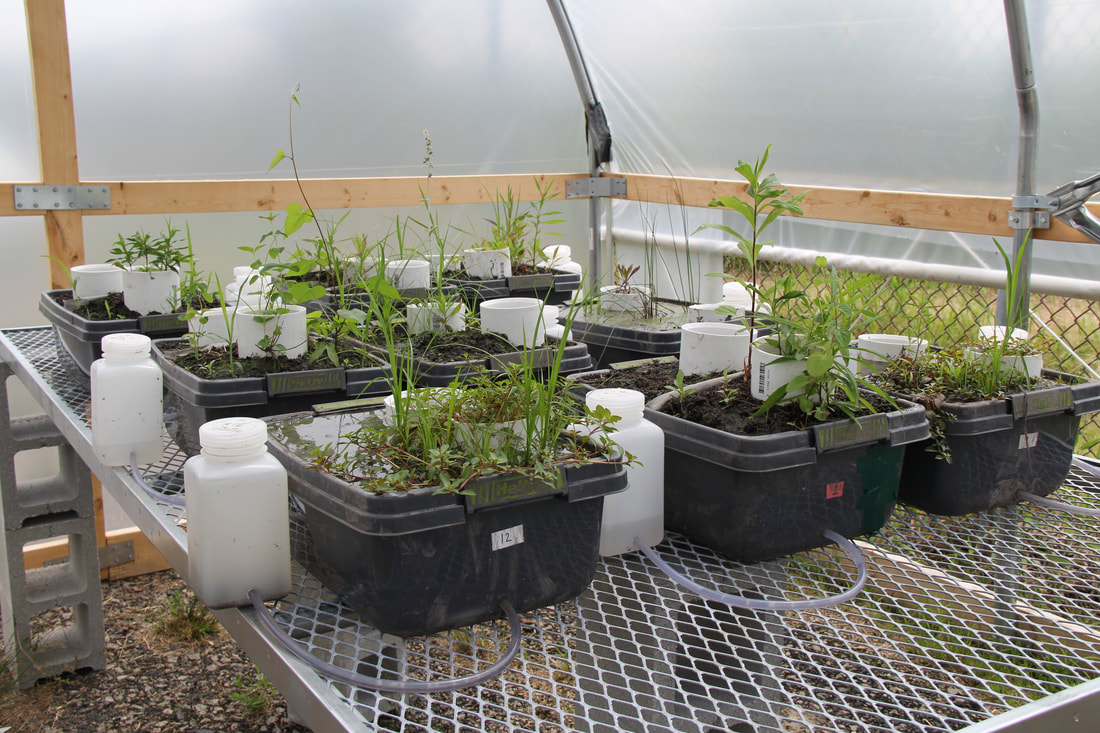Commitment to Linking Scholarship and Teaching
Course-based Undergraduate Research Experiences (CUREs). The ECU Department of Biology’s long-term ecological experiment provides a central theme of hands-on research to our undergraduates. This living laboratory was established in 2004 as a CURE focused on environmental change effects on plant communities. This long-term experiment provides hands-on research experiences for biology undergraduates in AP's Microbiology and Microbial Ecology courses. Visit WetlandEcoEx to learn more.
COURSES
Microbiology for Majors (BIOL 3220/3221) [offered FALL - every semester]
Course Description: Microorganisms are ideal models for understanding basic life processes. In this course, microbial cell structure, function, physiology, and growth are examined at the cell, population, and community levels. Microbial interactions with their environment are explored in the context of host health, disease, elemental cycling, and climate change. Classical and molecular microbiology methods to study microorganisms are also presented. For more information, please visit:
Microbiology Teams mini-CURE (BIOL 3221)
Microbiome Sequencing and Analysis (BIOL 3504, section 280)
Microbial Ecology (BIOL 4560/6560) [offered SPRING - odd years]
Course Description: Microorganisms are the most diverse and abundant organisms on Earth. Microbial functions are important to regulating energy and nutrients in the environment, producing food, breaking down pollutants, and keeping us healthy. In this course, we will take an ecological and evolutionary perspective to examine processes that generate and maintain microbial biodiversity. We will also explore how microbial traits influence the abundance and distribution of microbes in various environments, and examine how microbial processes impact ecosystem functions and services. Core concepts will be reinforced and evaluated through discussion of primary literature, homework, exams, and a semester-long microbial biodiversity project.
Course-based Undergraduate Research Experiences (CUREs). The ECU Department of Biology’s long-term ecological experiment provides a central theme of hands-on research to our undergraduates. This living laboratory was established in 2004 as a CURE focused on environmental change effects on plant communities. This long-term experiment provides hands-on research experiences for biology undergraduates in AP's Microbiology and Microbial Ecology courses. Visit WetlandEcoEx to learn more.
COURSES
Microbiology for Majors (BIOL 3220/3221) [offered FALL - every semester]
Course Description: Microorganisms are ideal models for understanding basic life processes. In this course, microbial cell structure, function, physiology, and growth are examined at the cell, population, and community levels. Microbial interactions with their environment are explored in the context of host health, disease, elemental cycling, and climate change. Classical and molecular microbiology methods to study microorganisms are also presented. For more information, please visit:
Microbiology Teams mini-CURE (BIOL 3221)
Microbiome Sequencing and Analysis (BIOL 3504, section 280)
Microbial Ecology (BIOL 4560/6560) [offered SPRING - odd years]
Course Description: Microorganisms are the most diverse and abundant organisms on Earth. Microbial functions are important to regulating energy and nutrients in the environment, producing food, breaking down pollutants, and keeping us healthy. In this course, we will take an ecological and evolutionary perspective to examine processes that generate and maintain microbial biodiversity. We will also explore how microbial traits influence the abundance and distribution of microbes in various environments, and examine how microbial processes impact ecosystem functions and services. Core concepts will be reinforced and evaluated through discussion of primary literature, homework, exams, and a semester-long microbial biodiversity project.
